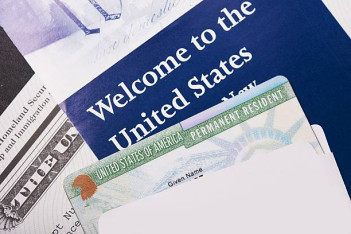Legal Setup for Joint Ventures Between U.S. and Foreign Partners
In today's globalized economy, cross-border collaborations between United States-based companies and foreign partners are increasingly common. These joint ventures offer tremendous opportunities for growth, innovation, and expanded market reach. However, to maximize the benefits and minimize risks, establishing a proper legal framework is essential. This article explores the critical elements of legal setup for joint ventures involving U.S. and international partners, highlighting contract considerations, roles definition, investment structuring, profit-sharing arrangements, and key legal protections.
Understanding Joint Ventures in a Cross-Border Context
A joint venture (JV) is a business arrangement where two or more parties agree to pool resources to accomplish a specific project or business activity. When U.S. and foreign entities enter into a joint venture, the complexity increases due to differing legal systems, regulatory requirements, cultural considerations, and business practices.
The legal setup for such cross-border joint ventures must accommodate these differences while establishing clear rights, responsibilities, and remedies for the involved parties. Properly drafted agreements nurture trust and set expectations, essential for a successful partnership.
Key Legal Considerations for U.S.-Foreign Joint Ventures
Several crucial legal issues should be analyzed and addressed when structuring joint ventures between U.S.-based companies and foreign partners. These include:
- Choosing the appropriate legal structure and jurisdiction
- Detailed contract drafting to define roles, contributions, investments, profit sharing, and dispute resolution
- Compliance with applicable U.S. and international laws and regulations
- Intellectual property protection and confidentiality provisions
- Exit strategies and mechanisms for resolving deadlocks
Selecting the Legal Structure for the Joint Venture
The legal form of the joint venture significantly affects tax treatment, liability exposure, management control, and regulatory compliance. Common options include:
- Formation of a Separate Legal Entity: Often a corporation or limited liability company (LLC) created under U.S. or foreign law. This approach allows the JV to operate as an independent business with distinct legal personality.
- Contractual Joint Venture: Where the parties operate together based on a contract without forming a separate entity. This setup typically involves more direct cooperation but may expose partners to greater liability.
- Partnership or Limited Partnership: Depending on the jurisdiction, partners may establish a formal partnership which involves joint liability rules that must be carefully managed.
The choice depends on factors such as tax considerations, desired liability protections, operational control preferences, and the legal environments of the U.S. and the foreign country.
Drafting Comprehensive Joint Venture Agreements
The joint venture agreement is the cornerstone document that governs the relationship between U.S. and foreign partners. This contract must be meticulously drafted to cover the following key areas:
- Definition of each partner’s roles and responsibilities to prevent overlaps and conflicts.
- Capital contributions and obligations, specifying the amount, timeline, and form (cash, assets, intellectual property).
- Profit and loss sharing formulas that align with each party's investment and operational input.
- Management and governance structure, including decision-making processes and voting rights.
- Dispute resolution mechanisms such as mediation, arbitration, or court jurisdiction, ideally accommodating international considerations.
- Confidentiality clauses and intellectual property protections to safeguard a party’s proprietary information and inventions.
- Exit and termination clauses outlining circumstances for withdrawal, buy-out rights, and winding up procedures.
Clear contractual terms not only help avoid misunderstandings but also strengthen the legal enforceability of the partnership commitments.
Investment Amounts and Financial Structuring
Defining precise investment amounts contributed by each partner is critical. Contributions may include financial capital, technology, equipment, personnel, or market access. The agreement should also specify the treatment of future capital calls to fund expansion or unforeseen expenses.
It is common practice to outline the schedule for initial and subsequent investments clearly. This prevents disputes arising from underfunding or delayed contributions. Additionally, partners should agree on how profits and losses are allocated based on their invested amounts and ongoing contributions, which fosters transparency and equitable treatment.
Profit-Sharing Arrangements and Financial Reporting
Profit-sharing terms must be explicit and negotiated upfront. These arrangements often reflect the proportion of investments or negotiated agreements taking into account strategic value and operational roles.
Furthermore, maintaining clear and transparent financial reporting standards is vital. The joint venture agreement should specify accounting principles to be used, financial audit rights, and reporting frequency. This openness builds confidence among partners and facilitates regulatory compliance in the respective jurisdictions.
Ensuring Compliance with U.S. and International Laws
Cross-border joint ventures are subject to a complex web of laws and regulations, including tax laws, import/export controls, antitrust rules, and foreign investment restrictions. For example, the Committee on Foreign Investment in the United States (CFIUS) may review deals that affect national security interests.
Moreover, compliance with laws such as the Foreign Corrupt Practices Act (FCPA) obliges the joint venture to avoid bribery and unethical business practices. Understanding and navigating these regulatory frameworks requires careful legal advice and proactive risk management by all parties involved.
Protecting Intellectual Property and Confidential Information
The protection of intellectual property (IP) rights is a paramount concern in joint ventures where technology or proprietary know-how is exchanged. The joint venture agreement should clearly define ownership rights of existing IP and any newly developed inventions or trademarks.
Non-disclosure agreements (NDAs) and confidentiality clauses safeguard sensitive business information from unauthorized use or dissemination, preserving each partner’s competitive advantage.
Resolving Disputes and Managing Deadlocks
Disputes are an inevitable risk in any partnership, especially in international joint ventures where cultural and legal differences may cause misunderstandings. To address this, parties should pre-establish dispute resolution mechanisms in the contract.
Options include negotiation, mediation, and international arbitration under recognized rules such as those administered by the International Chamber of Commerce (ICC) or the American Arbitration Association (AAA). Including deadlock resolution clauses is also beneficial, offering methods like buy-sell provisions or third-party mediation to prevent stalemates in management decisions.
Cultural and Communication Factors
Beyond legal documents, building a successful joint venture depends on mutual understanding and effective communication between U.S. and foreign partners. Cultural differences in business etiquette, negotiation styles, and decision-making approaches should be acknowledged and addressed to foster cooperation and long-term success.
Engaging bilingual legal teams and professional translators can help bridge language gaps and ensure clarity in agreements and ongoing communications.
Importance of Expert Legal Counsel
Given the complexity and high stakes involved in cross-border joint ventures, seeking experienced legal counsel is indispensable. Attorneys well-versed in both U.S. and foreign law can provide guidance on structuring the venture, drafting comprehensive contracts, navigating compliance challenges, and protecting partners’ interests.
Early legal involvement reduces risks and provides a foundation for lasting and fruitful collaboration.
Establishing a joint venture between U.S. and foreign partners presents tremendous opportunities but requires thorough legal planning and clarity. Clear contracts defining roles, investments, profit-sharing, intellectual property rights, and dispute resolution are essential components in creating a trustworthy and enduring partnership. Compliance with applicable laws and sensitive management of cultural differences further enhance the joint venture’s prospects for success.
If you are considering or currently negotiating a cross-border joint venture, consulting with legal experts who specialize in international business law can safeguard your interests and contribute to a strong foundation. For professional assistance, please contact us through the communication channels provided in the bio or send a private message to discuss your specific needs.
Legal Marketplace CONSULTANT — a law firm specializing in comprehensive legal services for businesses and individuals. Our team includes experienced attorneys, legal consultants, tax advisors, auditors, and accountants. We focus on supporting complex legal matters, particularly those involving cross-border transactions and joint ventures between U.S. and foreign partners.































